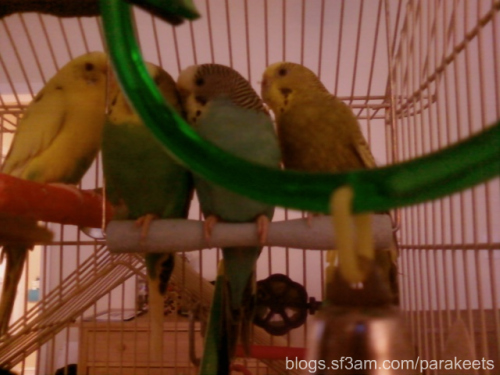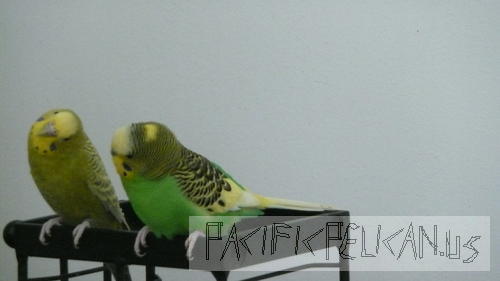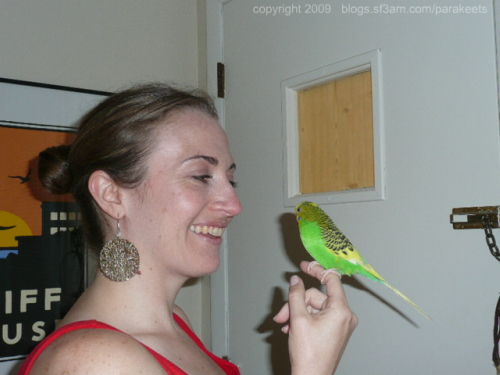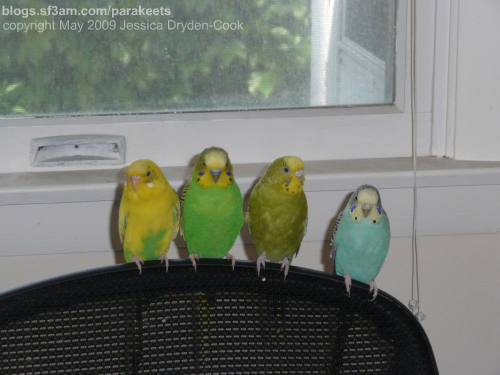Sparty, Striker, Belle, and Ava heard a lot of thunder and decided to stick together. August 2009.
Ava and Striker have a conversation
Bird toys
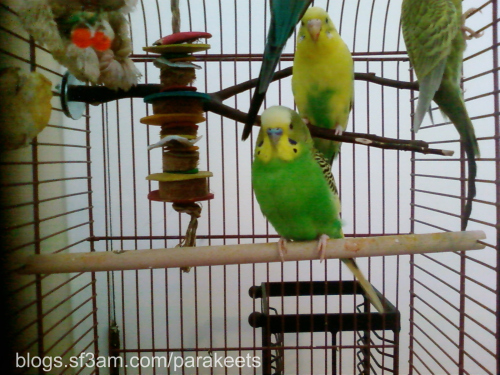
It’s important to give your parakeets a new toy every once in a while–they enjoy things with different textures that they can explore and bite, and that they generally like colorful stuff. Make sure that you get a safe, high-quality item that is okay for your birds to chew up–my parakeets enjoy those hanging things with soft wood and seashells strung on them. If you want to read more, this parakeet blog has an entry that discusses the subject of bird toys and shares some tips.
Jessica with Striker
standing on one leg
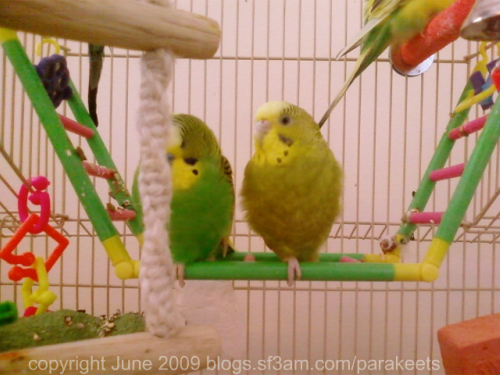
A parakeet sitting on one leg is often interpreted as the mark of a relaxed bird. If your bird feels comfortable, it will sometimes retract one of its legs into its feathers.
four parakeets on a chair
Jessica took this photo of Sparty, Striker, Ava and Belle while they were sitting on one of their favorite household perches–the back of my office chair.
me with Ava, Striker and Belle
by Jessica
May 2009
Jessica with Striker
Striker and Belle on my arm
May 2009
These two are very adventurous–Striker (the green one) is very bold and brave, ready to meet new people, try new foods, and explore new rooms in the house. Belle is very affectionate and trusting. Plus, when one goes exploring, the other one starts chirping loudly until he gets a response from the other one–and eventually they usually meet up after exchanging numerous geo-location chirps.
clipping your bird’s wings
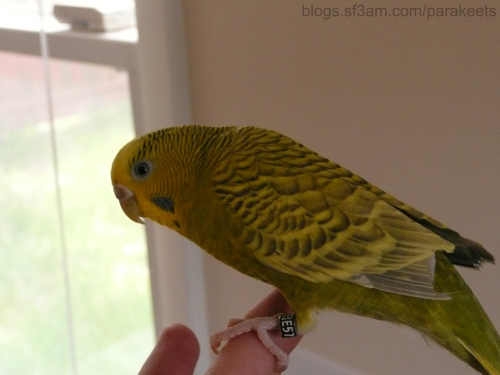
[Update 4/18/2010: I have re-thought my views slightly on wing clipping with experience; you can read an updated opinion here.]
Birds like to fly–this can make them very interesting pets at times, but there are also times when they need to have their wings clipped. Summer is coming up, and if birds are going to come along for trips, you don’t want them flying away, plus they have to be ready with the latest look.
Many bird owners like to have their pet’s wings clipped so that they can’t fly away or into trouble, but of course you want to leave the bird enough feathers to flap a little with, which will be crucial for landing when they try to fly after the cut.
It’s a good idea to have a veterinarian or vet tech do the cutting for you the first time your bird(s) have wings clipped. Ask to see them do it–nice clinics will often allow you–and then you’ll have a good idea how to do it yourself.
After that you can buy the special stainless steel wing clipping scissors they sell at pet stores and use them with greater confidence.
It’s really a two-person job, so make sure you have a bird-friendly assistant to help hold your bird, and make sure you know where to cut the feathers on your particular species.
Birds respond to feathers being cut (in the right place, of course) much in the same way a person would respond to a haircut–which is to say, the process should not be painful. Of course, most birds like to move around and don’t like to be restrained, but make sure your assistant holds your pet firmly while you cut the feathers.
With preparation, the right tools, a good assistant and proper care, and a few minutes, your wing clipping should go smoothly and you and your bird should be ready for safer adventures together!
